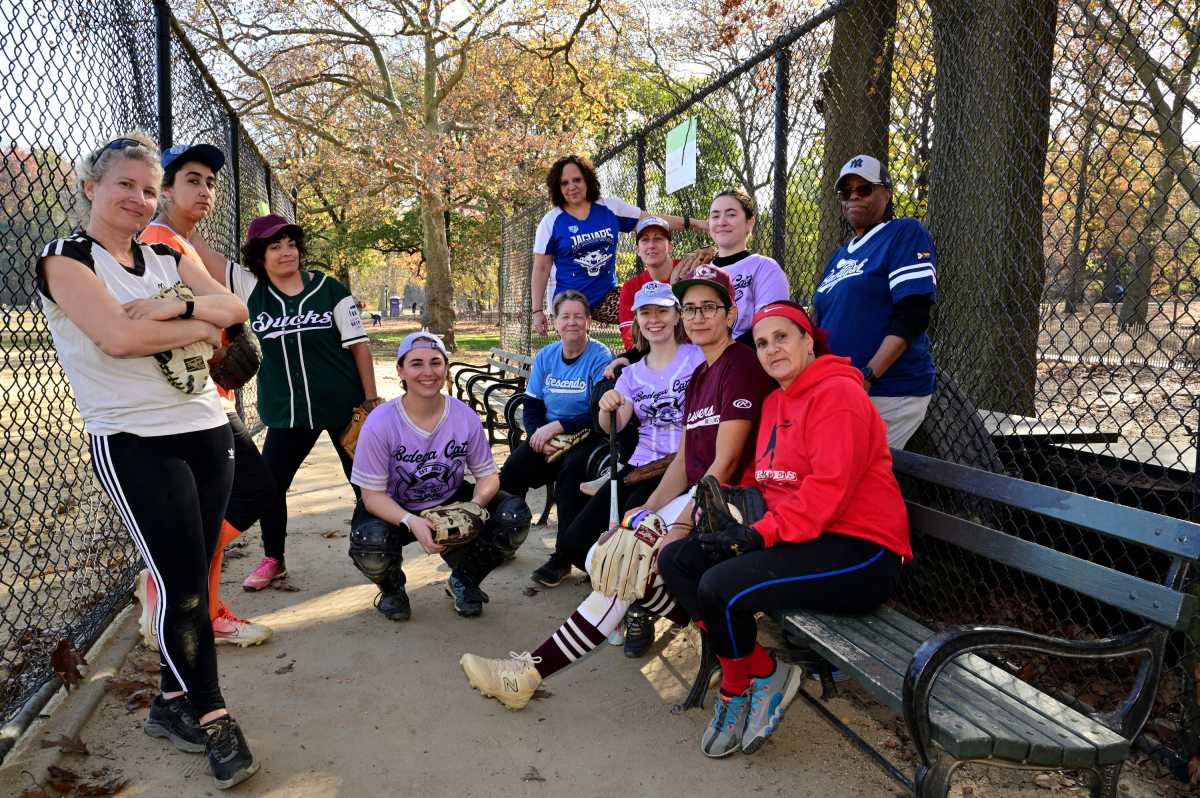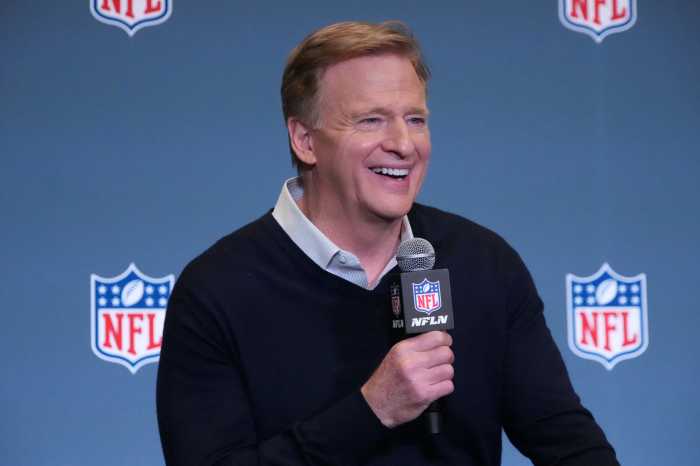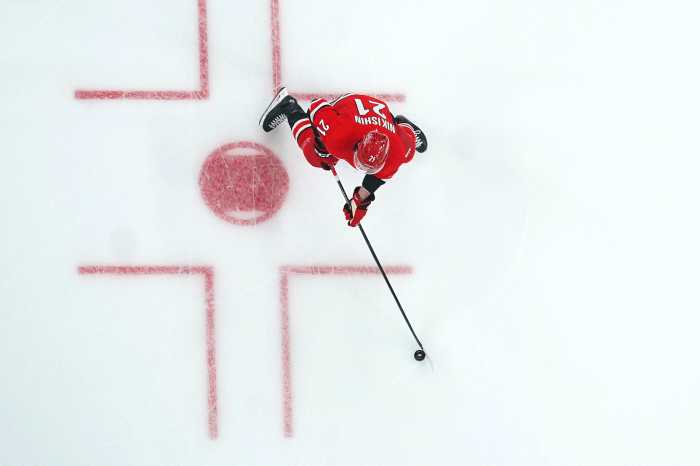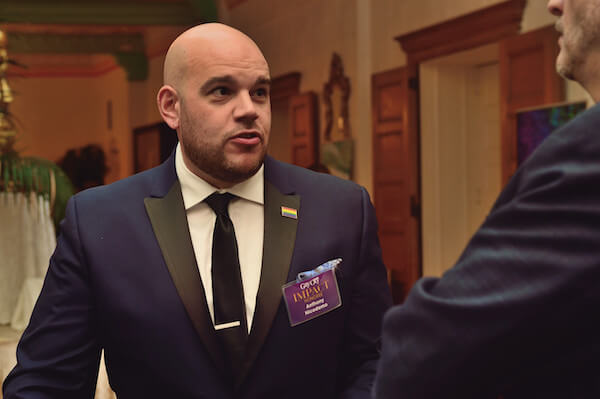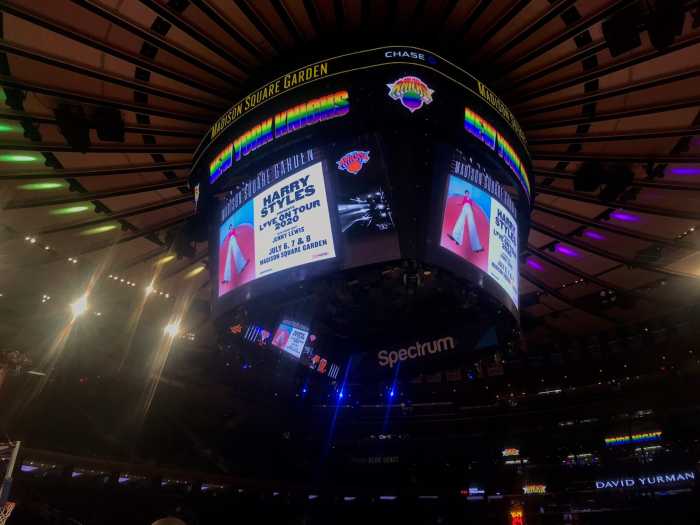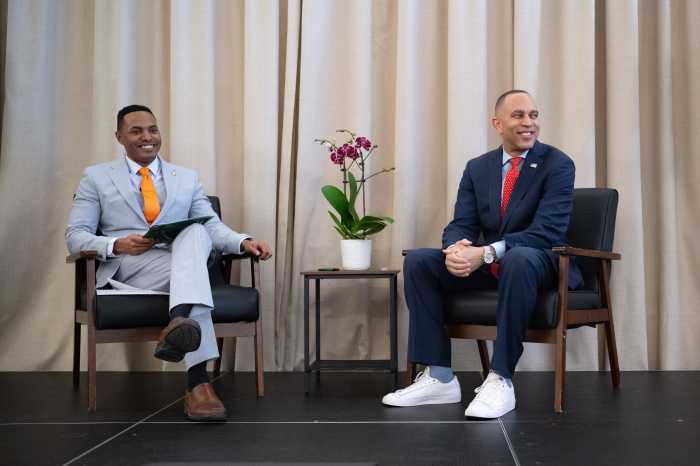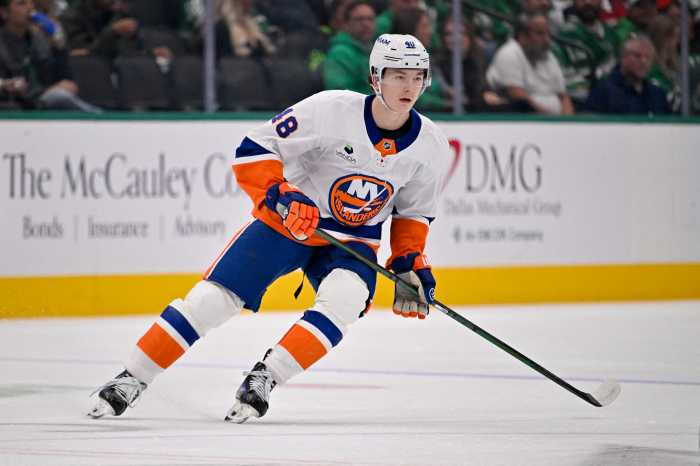Tryouts don’t begin until March, but it is never truly the off-season for the players and coaches who make up the 14 teams competing in the Prospect Park Women’s Softball League (PPWSL).
Launched in 1981, the thriving PPWSL has stretched the limits of recreational sports for more than three decades. Sky-high demand in recent years prompted an expansion from 12 to 14 teams as more and more players continued to step forward to try out for a spot in the instructional softball league. The league is open to anyone who is at least 18 years of age and identifies as a woman, trans, or non-binary. Teams are represented by adults of all ages, with one team featuring a 22-year-old and a 68-year-old.
Many, but not all, of the players are members of the LGBTQ community, and above all else, the league serves as an inclusive space for individuals to play sports together and connect with new people.
“I think for a lot of us, that’s the thing — we walk into Prospect Park on a weekday night, put our phones down for a couple of hours, and just have a good time and play softball,” Monica Hill, the current league president, told Gay City News.
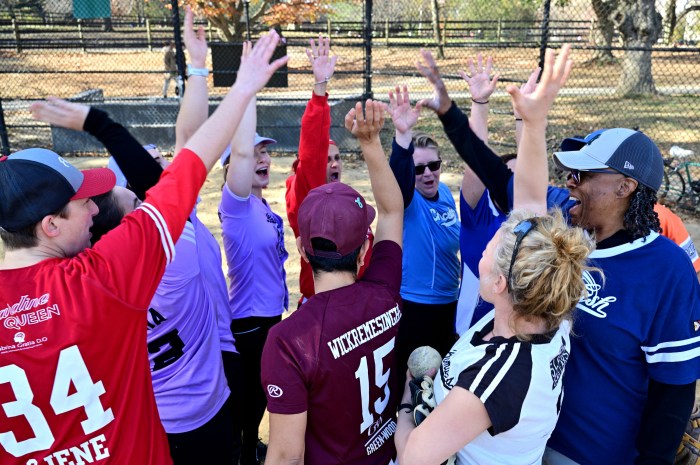
The season begins heating up in the spring when the league holds the March tryouts, followed by preseason games beginning at the end of April. Each team plays 14 games over the summer until the tournament begins in mid-August. Teams are assembled based on skill level, making it as even of a playing field as possible. Teams usually have one practice and one game per week, but players often stick around to watch other games, too. Regular season games only take place on weekdays.
Unofficially, the season never really seems to end. Many players, including individuals who fail to make a team during tryouts but are still eager to take another shot next year, play some variation of post-summer “fall ball” — informal games or practices outside of the PPWSL — in Prospect Park.
In a clear sign of demand, league members told Gay City News there is always a wait list for players hoping to join the league. Some players who aren’t able to secure a spot on a team go as far as obtaining their own permits to organize separate games during the season, leading them to become affectionately known as “the understudies.”
Hill joined PPWSL about 15 years ago because she sought a place to play softball in Brooklyn — particularly in an environment that would welcome her with open arms.
“Personally, I was looking for a queer community — that was the one thing that was sort of missing,” Hill told Gay City News.
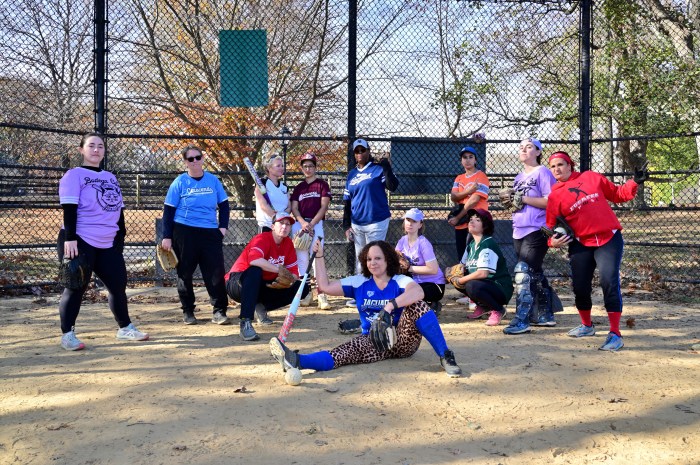
Another PPWSL veteran, Melanie Hope, became involved in the league in 2004, largely thanks to a friend who was a PPWSL coach. Like some others, Hope has experience as both a player and a coach.
“I saw some games, and then finally, [my friend] encouraged me to try out,” Hope said. “I’ve been on the same team the entire time — the Jaguars.” Hope said many players change teams during their time in the league.
Neela Wickremesinghe, who plays for the Brooklyn Beavers and has been in the PPWSL since 2017, learned about the league while walking through the park. One day, a college friend on the field invited Wickremesinghe to join players at the Brooklyn LGBTQ bar Ginger’s after the game.
“I said, ‘I’ve got to go to that,’ Wickremesinghe recalled saying. “I played softball growing up and a bit in college, and I had played on a co-ed ultimate frisbee team.”
Like others, Wickremesinghe developed connections with other players — and even wound up falling in love through the PPWSL.
“My partner is on a different team,” Wickremesinghe said. “I have friends on many different teams. It’s hard to make friends as an adult, especially if you’re single. Depending on where you are in your life, joining something like this can be instrumental in creating a community.”
The league allows players and coaches to build camaraderie in meaningful ways. Teams typically plan offseason gatherings, such as visits to the country or camping adventures. Parties and events are also sprinkled throughout the year.
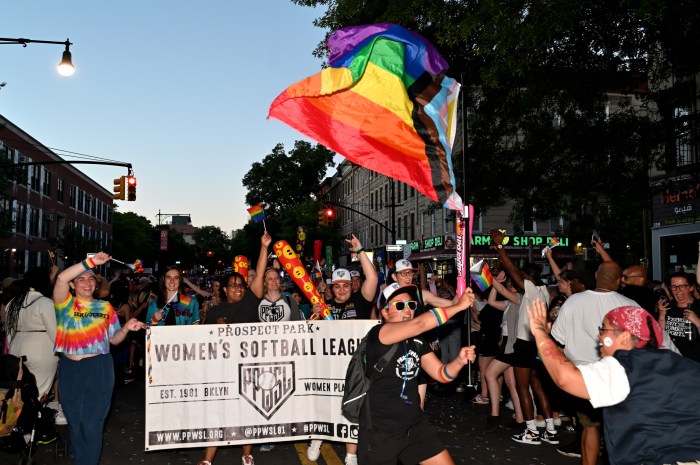
It takes exceptional organizing skills and devotion to keep a 300-person league moving — from planning game schedules and navigating unpredictable weather to ensuring smooth operations on the field. Hill described the league as somewhat resembling a business — “not that we’re making money,” Hill said — but in the sense that there are structured systems, a board of directors, a player handbook, and more.
Some changes over the years have led to improvements in the league. The rise of social media, for instance, fostered more social interaction between players from different teams. Plus, the increased engagement on social media translated into a better understanding of players’ strengths off the field, which became helpful when the league sought to organize fundraisers and other events.
“We had graphic designers, artists, people who worked as photographers, people who worked in merchandising — so we actually had people who knew which fabrics to get, which color schemes, and artists designed the logos,” Hope said. “It also kinda bridged in with social media where we were promoting events that way.”
It seems as though everyone has some role to play. Wickremesinghe serves as draft chair as well as parks liaison, working with the New York City Department of Parks & Recreation on initiatives such as coordinating the fields and ensuring they are in good playing condition.
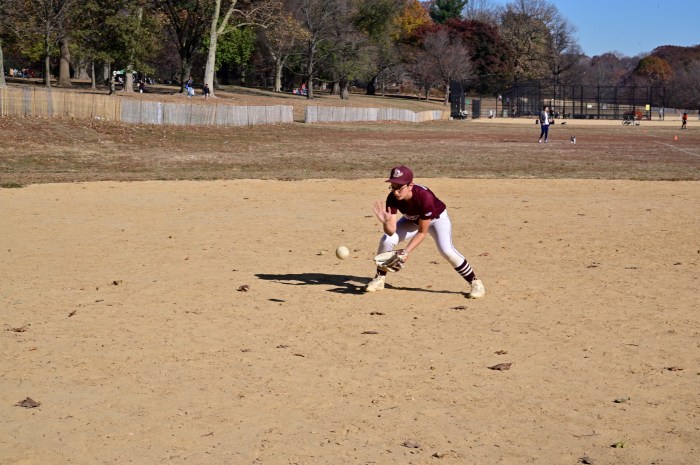
The league’s vision, of course, has remained the same despite growth and changes over three-plus decades. The league holds great respect for the inaugural trailblazers who brought the league to fruition, with events such as a “legends game” during which current and former players suit up and play together.
“It always feels like the people we never played with in the ‘80s are just like us: They want to have that space and they love coming back into that space,” Hill said.
The players are softball players first, but they also keep coming back because of the welcoming atmosphere, which is even more critical at a time when transphobic sports policies across the nation have targeted trans and non-binary athletes. Members told Gay City News that while they do engage in discourse about issues such as trans inclusion in women’s sports, the league remains steadfast in its commitment to allowing people to play without discriminating on the basis of gender identity or expression.
“Our system allows for total inclusivity, and you try out as you are,” Hill said. “If you’re given a place in our league, that place is yours.”
The league’s growth has coincided with more trans representation in leadership roles, which, in turn, has made the rest of the league stronger and more connected. There has been a more significant push in recent years to respect pronouns, Hill said, noting that some individuals from older generations continue to struggle with using the correct pronouns.
“Even in a very diverse community like ours, we still have people who are struggling with that,” Hill explained.
The league has also placed a renewed focus on improving racial diversity within its ranks. The protocol governing how players are drafted was amended in 2022 to include “a priority pool for self-identifying BIPOC players to help our league demographics better match our larger community in Brooklyn,” according to the organization’s website.

All in all, it’s a community effort — and many people in the league work together to foster a positive atmosphere that ultimately paves the way for memorable moments.
One of Wickremesinghe’s favorite memories in the league came last year when she had to fill in as a pitcher, even though that is not her usual position. She was feeling the pressure because she was facing her girlfriend’s team, which had won the championship the year before. Wickremesinghe’s girlfriend crushed a line drive that forced Wickremesinghe to use the back end of her glove to make a play. Wickremesinghe managed to escape the inning unschathed — thanks in part to a magnificent catch by a teammate in the field.
“Moments like that I won’t forget,” Wickremesinghe said. “For myself, as a queer woman, it’s great to be in a majority queer space, but also with people who aren’t queer and who are still part of our community and our strongest allies.”

